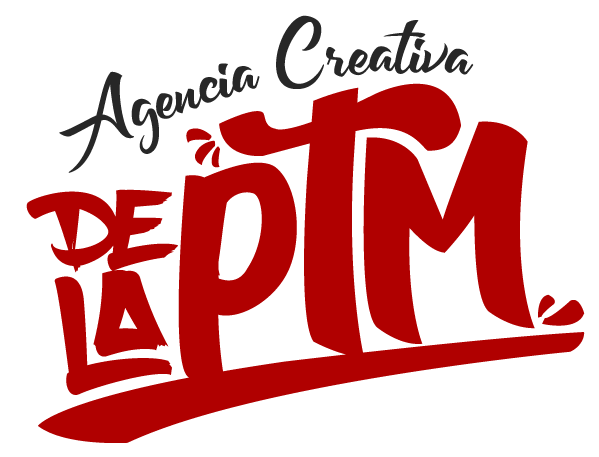The Accountant’s version provides bookkeeping services that can import accountant copy files from clients, batch enter transactions, and run a working trial balance report. Yes, QuickBooks Enterprise does have a cloud-hosted option that gives you access to the software at any time, anywhere, and with any device. QuickBooks Desktop Enterprise with Hosting is a subscription-plan and incurs an additional cost on top of the standard Enterprise licensing costs. Hosting for QuickBooks Enterprise is provided via Right Networks, who also perform all data backups on a nightly basis. The cloud-hosted version of QuickBooks Enterprise operates as you would expect most remote desktop services.
- On the surface, QuickBooks Pro and QuickBooks Premier are very similar.
- But there isn’t just one version of QuickBooks—if QuickBooks Online doesn’t work for you, another one of the six different versions of QuickBooks could.
- Intuit and other accounting software companies make plenty of products just for enterprise users that suit your needs better.
- All QuickBooks Online versions have invoicing features but some have more advanced features, like the ability to create recurring invoices.
- The advantage of QuickBooks Essentials vs Simple Start is the ability to assign hours worked to specific customers.
- On average, small business owners spend less than 30 minutes getting started in QuickBooks2.
Since QuickBooks Online is priced as a monthly subscription, it doesn’t require a contract and you can cancel your account at any time. Additionally, the desktop products are only available as annual subscriptions, making them a bigger commitment than QuickBooks Online. QuickBooks Enterprise offers around 200+ industry-specific reports to Premier’s 150+ financial reports. It also includes more advanced customizations and inventory management features. And with up to 40 users, it works best for big businesses that emphasize financial collaboration and can shoulder the higher cost of an enterprise-level solution.
App integration
The first major deciding factor is whether or not you want cloud-based or locally-installed software. Best for small to medium-sized businesses looking for locally-installed software compatible with Macs. Best for freelancers, contractors, and other self-employed individuals in need of basic bookkeeping and tax support. In this section, we’ll overview the six versions of QuickBooks, giving the pros and cons of each. The QuickBooks Online plans vary in terms of the number of reports you can create and the ability to run customized reports. The QuickBooks Online plans are rated based on their affordability, with Self-Employed and Simple Start being the most affordable and Advanced the least affordable.
- For QuickBooks Desktop (Premier and Enterprise), you don’t need to buy the software every year.
- According to the QuickBooks site, individual businesses interested in Enterprise can work out a customized pricing solution that saves them some money.
- The two versions are independent of each other, which means the data you enter on Desktop doesn’t sync to the Online version and vice-versa.
- Read our detailed QuickBooks Live Bookkeeping review to learn more about this assisted bookkeeping add-on.
As an added convenience, if you outgrow your current edition of QuickBooks Online, upgrade to a more powerful plan in minutes. QuickBooks Online wins this one, offering easy system navigation from the user dashboard. QuickBooks Desktop’s user interface is very different from QuickBooks Online, offering navigation using a flowchart style menu. Alternatively, you can hire a QuickBooks ProAdvisor to help with your bookkeeping needs.
The features are designed specifically for freelancers to address needs such as estimating quarterly taxes, filing Schedule Cs, and tracking deductions. You can easily separate personal and business expenses, which is ideal for freelancers who don’t have separate business bank accounts. Not only does Quickbooks Self-Employed help freelancers navigate the scary waters of estimated quarterly taxes, but it also gives them basic bookkeeping tools to track income and expenses. QuickBooks debit note vs credit note whats the difference Plus is the most popular plan for businesses since it includes features such as inventory tracking, project management and tax support. Midsized businesses with several customers or clients might benefit from the ability to track profitability with QuickBooks Plus. Because the Plus plan enables users to view and track projects, including project expenses and labor costs, users can accurately track a project’s profitability and generate relevant reports on project progress.
All plans include
QuickBooks Essentials works best for the businesses that have heavy accounts payable and gives access to three users at the same time. Finally, QuickBooks Online Plus Plan offers most features and works well for large businesses giving access to five users. If you have more questions, you can visit our Online FAQs support to know more about frequent ask questions.
Customer Service
Both applications also include an easy setup process, so you can be up and running in little time. The closest comparison that can be made would be between QuickBooks Enterprise and QuickBooks Online Advanced. This is for the “Gold” version which should give your business all you need to get started with accounting. This annual subscription can sometimes include a 10% discount for the first year of service. QuickBooks Online is praised for its ease of use and robust feature set.
When is QuickBooks Desktop better than QuickBooks Online?
QuickBooks Enterprise Gold and Platinum plans include Enhanced Payroll, while Enterprise Diamond includes Assisted Payroll. With QuickBooks Desktop, you can set recurring invoices, send payment reminders, send batch invoices, and track invoices, but you’ll miss out on many of the other modern, cloud-based automations that QBO provides. We recommend crunching the numbers to decide whether the online or desktop versions of QuickBooks are right for your specific business. You must purchase additional licenses if you want to access it on multiple computers. While you can add cloud access to QuickBooks Enterprise, it involves an additional fee. Many or all of the products featured here are from our partners who compensate us.
Small business owners that previously used spreadsheets save an average of 25 hours per month on manual entry with QuickBooks3. With QuickBooks, small business owners have more time to spend running their business and managing all aspects of their business from invoicing, managing inventory, and paying bills right from QuickBooks. However, freelancers that need good tax support and don’t require the more advanced features found in QBO may find everything they need with QuickBooks Self-Employed.
Business
QuickBooks Desktop is an annual subscription, starting at $549.99 per year, which may be cost-prohibitive for small businesses or cash-strapped startups. While the Desktop version has app integrations, it doesn’t have near as many as the Online version. There are over 200 options instead of the 650-plus to its cloud counterpart. When signing up for QuickBooks Online, it only gives options for paying monthly. However, once you’ve signed up, navigate to your account settings, and you can switch to annual billing to save 10%. All Online plans include receipt capture, QuickBooks support and more than 650 app integrations with apps such as PayPal, Square and Shopify.


